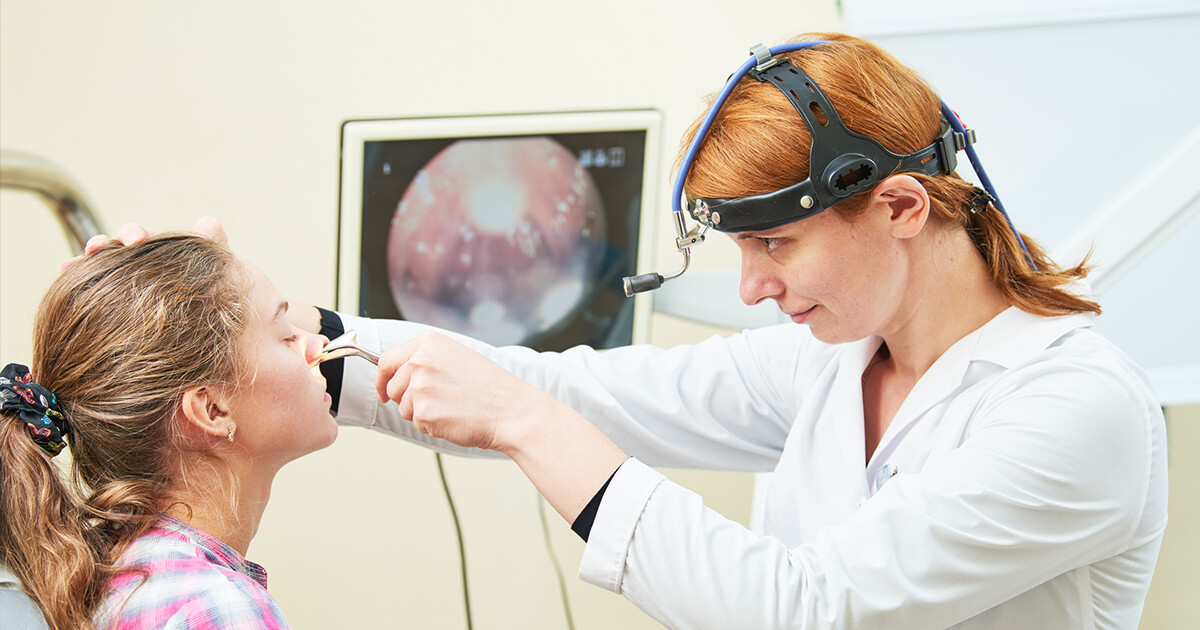Comprehensive Overview at Otolaryngology and Its Role in Treating Throat Disorders
Comprehensive Overview at Otolaryngology and Its Role in Treating Throat Disorders
Blog Article
Discovering the Area of Otolaryngology: What to Anticipate When You Consult an ENT
Otolaryngology, generally described as ENT, includes the medical diagnosis and treatment of nose, ear, and throat conditions. ENT surgery. For those experiencing associated problems, getting in touch with an ENT expert can offer clarity and alleviation. Understanding what to anticipate during such appointments is essential for reliable interaction and treatment. This overview will certainly lay out essential elements of the ENT experience, consisting of typical reasons for sees and the procedures associated with diagnosis and treatment
Recognizing Otolaryngology: An Overview
Otolaryngology, usually referred to as ENT (Throat, nose, and ear) medication, is a specialized branch of medicine that focuses on the diagnosis and treatment of conditions affecting these important locations of the human body. This field encompasses a variety of conditions, including those associated to hearing, balance, breathing feature, and speech. Otolaryngologists are trained to take care of both surgical and clinical therapies, using innovative strategies and modern technologies. Their proficiency expands past conventional disorders, resolving problems such as allergic reactions, sinus infections, and hearing loss. In addition, they play a critical role in the monitoring of head and neck cancers, supplying extensive treatment tailored to individual client demands. Overall, otolaryngology stays crucial for preserving health and wellness and lifestyle in damaged individuals.
Common Factors to See an ENT Expert
Several individuals seek the proficiency of an ENT professional for a variety of factors, showing the diverse nature of conditions that impact the throat, nose, and ear. Common issues consist of chronic sinusitis, which often results in persistent nasal blockage and face discomfort. Allergic reactions and their associated signs and symptoms, such as sneezing and itching, also prompt check outs to these professionals. Hearing loss, whether gradual or sudden, is another significant reason for examination. On top of that, people might seek examination for throat problems, including consistent hoarseness or swallowing difficulties. Rest apnea, identified by interrupted breathing during sleep, is frequently resolved by ENT professionals also. Each of these conditions highlights the importance of specialized treatment in managing complex ENT-related health issues.
Getting ready for Your ENT Visit
When planning for an ENT appointment, it is necessary to gather pertinent information and consider any kind of details issues. Clients must assemble a detailed case history, including previous ear, nose, or throat issues, surgical procedures, and current medicines. Documenting signs and symptoms-- such as duration, seriousness, and regularity-- can give beneficial insights for the ENT expert. In addition, individuals ought to prepare a listing of inquiries they wish to ask, making sure that all issues are dealt with during the browse through. Bringing along any relevant medical records or examination outcomes can additionally aid the ENT in recognizing the patient's condition. Ultimately, patients must confirm their appointment information, consisting of date, time, and location, to reduce any type of last-minute complication. Proper prep work can boost the performance of the appointment and bring about far better outcomes.

What to Anticipate Throughout the Consultation
As the assessment begins, the patient can expect to participate in a comprehensive discussion with the ENT expert concerning their symptoms and medical history. The specialist will certainly ask about the period, regularity, and severity of signs such as hearing loss, nasal congestion, or aching throat. Furthermore, the individual's previous medical conditions, drugs, and any type of relevant family background will certainly be reviewed, helping the specialist in creating a total understanding of the client's health and wellness. The ENT may also inquire about lifestyle variables, such as direct exposure to irritants or allergens. This open discussion establishes a structure for the appointment, making certain that the client's worries are resolved and establishing the stage for any type of necessary analyses or suggestions for therapy.
Diagnostic Tests and Procedures in Otolaryngology
A series of analysis examinations and treatments are essential in otolaryngology to properly assess and identify problems influencing the nose, ear, and throat. Typical examinations include audiometry, which gauges hearing function, and tympanometry, examining center ear stress. Nasal endoscopy enables visualization of the nasal passages and sinuses, while laryngoscopy takes a look at the throat and singing cables. Imaging strategies, such as CT scans and MRIs, provide detailed views of head and neck frameworks. Allergy screening may likewise be carried out to determine triggers for sinus or breathing problems. These diagnostic tools make it possible for ENT specialists to develop a complete understanding of individuals' problems, making certain customized and reliable management strategies. Proper medical diagnosis is essential for effective therapy end results in otolaryngology.
Treatment Choices Supplied by ENT Specialists
ENT specialists offer a selection of therapy choices tailored to address certain problems influencing the ear, nose, and throat. These treatments range from traditional methods, such as drug and lifestyle modifications, to even more intrusive procedures. As an example, allergic reactions may be managed with antihistamines or immunotherapy, while chronic sinus problems might need nasal corticosteroids or sinus surgical treatment. For hearing loss, ENT specialists commonly recommend listening device or surgical treatments like cochlear implants. In instances of throat problems, options can include speech treatment or surgeries to remove obstructions. Furthermore, they might give assistance for handling rest apnea, consisting of using CPAP tools or medical treatments. On the whole, the objective is to improve patients' high quality of life with personalized treatment and reliable therapy techniques.
When to Seek Follow-Up Treatment With an ENT
Acknowledging when to seek follow-up treatment with an Hearing ENT expert is important for managing recurring signs or issues connected to nose, ear, and throat problems (Voice). Individuals ought to think about setting up a follow-up consultation if signs and symptoms continue in spite of first treatment, such as persistent ear discomfort, nasal congestion, or throat discomfort. Adjustments in hearing, equilibrium issues, or uncommon nasal discharge might likewise call for additional evaluation. Additionally, if a client experiences adverse effects from prescribed medicines or has actually undertaken a medical procedure, follow-up care is necessary to monitor recuperation and attend to any type of issues. Timely consultations can guarantee reliable administration of conditions, prevent potential difficulties, and offer assurance pertaining to one's wellness. Seeking follow-up care promotes proactive health and wellness monitoring in otolaryngology
Regularly Asked Concerns
What Credentials Should I Look for in an ENT Professional?
When seeking an ENT professional, one ought to search for board accreditation, relevant experience, and strong client evaluations. In addition, efficient communication abilities and a thoughtful approach can considerably boost the general treatment experience.
Just how Do I Choose the Right ENT for My Needs?
Picking the ideal ENT professional involves reviewing their qualifications, experience, and individual reviews. It is essential to ponder their communication design and method to treatment, guaranteeing they line up with the person's specific health needs and choices.
Exist Any Threats Connected With ENT Procedures?
The dangers connected with ENT procedures may consist of infection, bleeding, anesthetic complications, and potential damage to bordering structures. Patients must talk about these risks with their doctor to understand private concerns and warranty informed choices.
Just How Can I Handle Anxiety Before My ENT Visit?
To manage stress and anxiety prior to a consultation, individuals can practice deep breathing exercises, imagine favorable end results, prepare concerns ahead of time, and seek assistance from good friends or family members, fostering a sense of confidence and calmness.

What Should I Do if I Experience Side Impacts From Therapy?
If side effects from therapy happen, the individual must without delay report them to their healthcare provider. Voice. Modifications to treatment or additional interventions might be necessary to assure safety and performance in managing their condition. As the examination starts, the patient can expect to engage in a thorough conversation with the ENT professional regarding their symptoms and medical history. These analysis tools make it possible for ENT specialists to develop a comprehensive understanding of people' conditions, guaranteeing customized and reliable administration plans. ENT professionals provide a selection of therapy options customized to resolve certain conditions influencing the throat, nose, and ear. When seeking an ENT professional, one must look for board accreditation, appropriate experience, and strong individual reviews. Picking the appropriate ENT expert involves examining their certifications, experience, and person reviews
Report this page